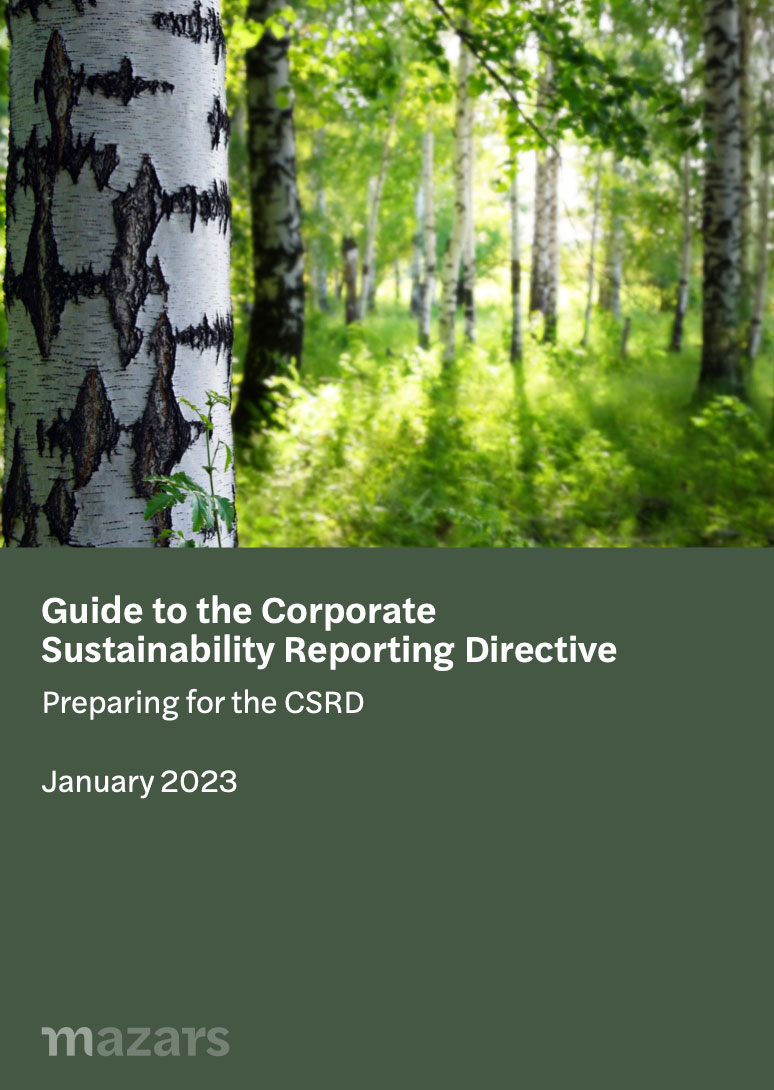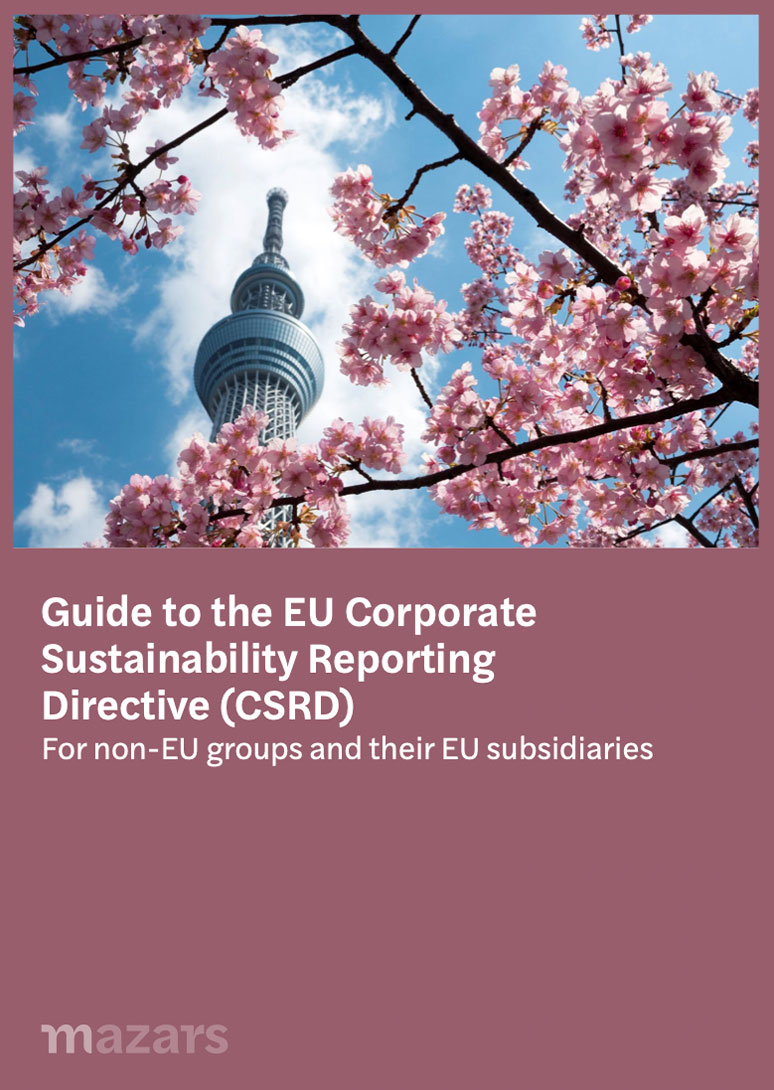In this article, we want to give you a brief regulatory and standards overview that we believe is relevant for companies to consider. Even if your company is not yet within the scope of the regulation and standards we will mention, it is likely that you will soon be impacted or that you have already begun to receive requests from your customers.
Here are the regulation and standards that you need to keep an eye on:
Corporate Sustainability Reporting Directive – ESRS
The Corporate Sustainability Reporting Directive (CSRD) is a European directive that already entered into force and requires a number of companies operating in the EU to publicly disclose and report on environmental, social and governance (ESG) issues. This means that companies will need to be prepared to comply with more stringent transparency obligations on their commitment to sustainability.
This regulation seeks to define a common language for sustainability reporting and establishes a common ground for financial and sustainability reporting. The purpose of the European Sustainability Reporting Standards (ESRS), is to improve the quality and comparability of information.
This regulation has 12 standards, and includes criteria related to the three letters: environmental, social and governance. Around 50,000 companies will be subject to mandatory reporting and securing anything they disclose.
Companies within the scope of the CSRD will have to report on their sustainability impacts and how sustainability issues affect the development, results and position of the company (what is known as double materiality).
EU member states will have to complete the incorporation of the directive by July 2024.
Mazars has a general guideline on CSRD which you can review here, and also a guideline for non-European groups that have activities in Europe, which can be downloaded here.
International Sustainability Standards Board – IFRS S1 and S2
At the end of 2021, during COP 26 (UN climate change conference), the IFRS Foundation announced the creation of the International Sustainability Standards Board (ISSB) with a view to developing a global regulatory reference on sustainability for financial markets.
The ISSB has defined four objectives:
- Developing standards for a global sustainability information base.
- Meeting the information needs of investors.
- Enabling companies to provide comprehensive sustainability information to global capital markets.
- Facilitating interoperability with jurisdiction-specific disclosures and/or aimed at broader stakeholder groups.
In this case, it consists of two associated standards, IFRS S1, focused on general requirements for the disclosure of financial information related to sustainability, and IFRS S2, focused on disclosing climate-related information:
IFRS S1 | IFRS S2 |
General requirements for the disclosure of financial information related to sustainability | Climate Related Disclosures |
- Requests the disclosure of material information on sustainability-related risks and opportunities;
- Establishes general reporting requirements
- Points to other standards and frameworks (e.g. SASB standards and CDSB framework implementation guidance) in the absence of specific IFRS standards; and
- Stresses the need for consistency and connection between financial statements and sustainability reporting, requiring financial statements and sustainability reporting to be published at the same time.
| - Mandates the disclosure of material information on climate-related risks and opportunities;
- Incorporates TCFD Recommendations and includes climate-related industry-specific themes and metrics of the SASB standards as guidance;
- Requires disclosure of any material information on physical risks (e.g. flood risk), transition risk (e.g. regulatory change) and climate-related opportunities (e.g. new technologies); and
- Mandates the disclosure of information on transition planning, climate resilience and scope 1, 2 and 3 emissions.
|
According to the latest ISSB updates, we will be seeing changes in June 2023. Applicability must be determined by each jurisdiction. However, it is widely expected that these standards will be adopted by some companies in Mexico and that it will become necessary to provide assurance.
Securities and Exchange Commission (SEC) - The Enhancement and Standardization of Climate-Related Disclosures for Investors
In March 2022, the SEC published the proposed rule, Enhancement and Standardization of Climate-Related Disclosures for Investors, with the broad objective that registrants (including foreign private issuers) provide investors with consistent, comparable and reliable information that allows them to make informed judgments about the impact of climate-related risks on current and potential investments.
The proposed rule focuses on registrants' disclosure of two types of climate-related information:
- Impact of climate-related events (severe weather events and other natural conditions, as well as physical hazards identified by the registrant)
- Impact of transition activities (including transition risks identified by registrants) to achieve climate-related objectives
In addition, in terms of internal control and third-party verification it proposes:
- All reporting categories will be subject to the registrant's disclosure controls and procedures
- Information on greenhouse gas emissions from large, accelerated filers shall be subject to the certification report of a qualified third party
- The aforementioned financial metrics will be subject to internal control requirements over financial reporting and external audit (as part of the audit of the financial statements)
The proposed standard can be classified into the following four categories:
a) Risks and governance
- Climate-related risks that are reasonably likely to have a material impact on registrants' business, results of operations, or financial situation; and their actual or probable material impacts on registrants' business, strategy, and prospects.
- Governance and oversight of climate-related risks and relevant risk management processes.
b) Objectives and targets
- If a registrant has set climate-related goals or targets, the proposed rule would require them to disclose them. Registrants would also be required to disclose how they intend to meet those goals or targets.
c) Financial metrics
- Registrants are required to provide certain climate-related financial statement metrics and related information in a note to the audited financial statements, subject to audit by an independent registered public accounting firm, and subject to registrants' internal control over financial information.
d) Greenhouse gas (GHG) emissions
- Registrants must provide the following information for their most recent tax year, covered by a verification report for expedited filers and large expedited filers:
- Scope 1 and 2 GHG emissions metrics, disclosed separately, expressed by disaggregated constituent greenhouse gases and in the aggregate, and in absolute and intensity terms
- Scope 3 GHG emissions and intensity, if significant, or whether registrants have established a GHG emission reduction target or a target that includes their Scope 3 emissions
This remains a SEC proposal, but it is important to keep it under review, given the changing nature of sustainability issues.
Beyond regulations and standards, the drive for sustainability only gains strength as one it feels the financial, environmental and social impacts of business as usual. This issue will become increasingly transversal across organizations, it should not be a department of the entity, but rather as a way of operating and a culture that must permeate the entire organization. Professional profiles must be updated and incorporate knowledge related to this subject.
Definitely a challenge, but also an opportunity for companies that decide to pay attention and act accordingly. The time is now.
Mazars has professionals around the world that are ready to support you in your journey towards sustainability.
Note: Although we have taken due care in the preparation of all information contained in this publication, Mazars shall not be held liable for any errors or omissions it might contain. This publication is based on Mazars' best understanding of the regulatory and standards provisions to date and its content may evolve very quickly due to the nature of the topic.
Download below the CSRD guidelines developed by Mazars




